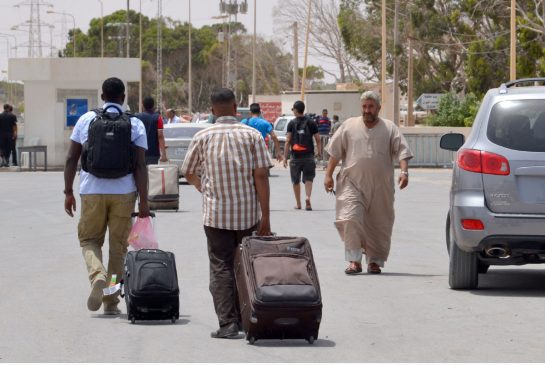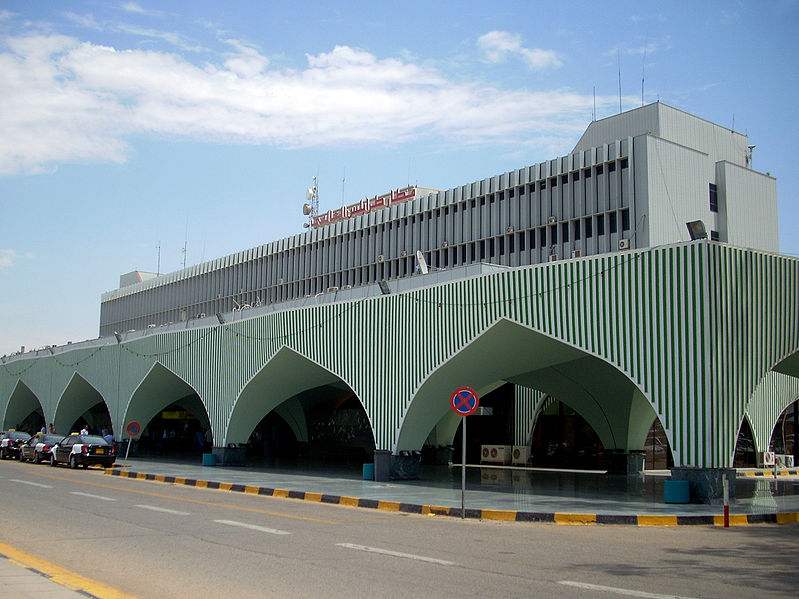By Libya Herald staff.

Tunis, 13 September 2014:
Tunisians are worried about the recent influx of Libyans pouring across the border into their . . .[restrict]nation, saying they are driving up prices and contributing to economic woes.
Reports estimate that up to two million Libyans are currently in Tunisia, some having settled there since the revolution and thousands more having recently arrived. Tunisia’s official news agency, TAP, has reported that some 5,000 Libyans have been entering Tunisia every day since fighting started in July.
Tunisia and Libya have always shared close ties, with residents of each being able to cross freely into the other country. During the revolution in 2011 Tunisians were welcoming of Libyans who came streaming into the country seeking refuge.
These days they are not so happy about the Libyan presence. Most complain that Libyans are driving up prices in their country. Rents, especially, seem to be a point of contention.
“Libyans come and they don’t bargain over rent. They just accept the first price offered. So owners are charging higher and higher prices, making it difficult for the rest of us,” complained one Tunisian resident to the Libya Herald.
Even Libyans are finding the increasing rent prices difficult. One Libyan who evacuated Tripoli last week with his family told the Libya Herald that he was used to renting a flat in the Nasser City area of Tunis for $30 per night. A similarly sized flat in the same area now goes for $150 per night.
Nasser City has a high concentration of Libyans. When Libya Herald reporters walked through the area recently, one in every three motor vehicle license plates were Libyan.
The increase in rents may have more to do with the time of year than the influx of Libyans. According to Faouzi, a real estate agent in the resort town of Sousse, rates are always double or triple at this time of year. He expects that prices will drop off significantly next month, even if the Libyans remain.
Tunisians also view Libyans as lazy and uneducated. “We have a joke,” said a Tunisian to the Libya Herald. “Tunisians have empty pockets, but their heads are full. With Libyans, their pockets are full and their heads are empty.”
Tunisians complain that the Libyans come with their big cars and drive too fast on their roads. They also resent that Libyans are buying their subsidised fuel for their “gas-guzzling cars” when they (the Libyans) already have “almost free” petrol in their own country.
The issue of subsidies is yet another point of contention. Tunisians complain that Libyans should not benefit from Tunisian subsidies, especially food and petrol subsidies.
Even Tunisian economists have expressed concern that the influx of Libyans could drastically impact Tunisia’s subsidy fund and harm the country’s economic recovery.
Last month the United Nations (UN) Economic and Social Commission for Western Asia (ESCWA) released a report on the Libyan conflict and its impact on Tunisia and Egypt.
In addition to concerns about Tunisia’s economy and the subsidies fund, the report also mentioned losses in the informal trade sector and in remittances from Tunisian workers in Libya.
Furthermore, Tunisian unemployment is exacerbated by Tunisians evacuating Libya because of the conflict. Prior to July there were reportedly 100,000 Tunisians working in Libya.
Obviously, some of the complaints that the average Tunisians on the street have about the Libyan presence in their country are a matter of perception rather than reality. But as the UN report indicates, there is a real possibility of a negative impact on the Tunisian economy.
There are also, however, many who are benefiting from the Libyan influx. Healthcare providers and facilities are major recipients of Libyan dinars. In Djerba, Sfax, Sousse and Tunis, Libyan license plates abound on cars surrounding the clinics and hospitals.
In coffee shops, restaurants, hotels, food shops, wherever Libyans are in Tunisia, they are spending money.
The UN’s recent report, citing Tunisia’s recent lower tourism figures, claimed, “The number of Libyan refugees has been rapidly increasing, especially in Tunisia where they can settle freely, which might be compensating for the loss in tourism receipts.”
The effect of the presence of almost two million Libyans on the Tunisian economy is clearly more complicated that the average person on the street realizes. Public perception, however, is important. As of now, however, Tunisians, though complaining, have not closed the door on Libyans. Tunisia remains a place of refuge for Libyans, just as it was in 2011. [/restrict]











